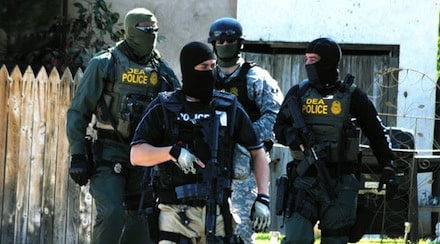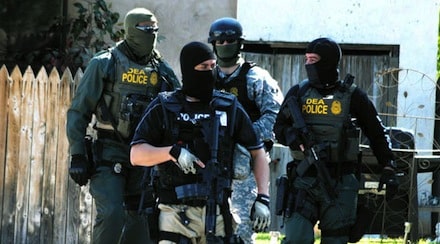When President George W. Bush announced the Global War on Terrorism in 2001 he did not have to start his war from scratch. Instead, the development of the United States government’s war on drugs that President Richard Nixon announced forty years earlier facilitated much of Bush’s new war. Two revelations this week provide new examples of the linkage between the two wars.
First, Brad Heath reported Wednesday at USA Today that from 1992 through 2013 the US Drug Enforcement Administration (DEA) collected calling records of “virtually all” phone calls from America to a long list of countries. At the list’s peak size, bulk collection was undertaken on calls between the US and over 100 countries. Countries that the article notes were on the list at “one time or another” include most countries in South America, Central America, and the Caribbean, as well as Canada, Mexico, Italy, Afghanistan, Pakistan, Iran, and other countries in Europe, Asia, and Africa.
Heath describes the DEA program as “a model for the massive phone surveillance system the NSA launched to identify terrorists after the Sept. 11 attacks.”
Second, Jana Winter reported Monday at The Intercept that the Screening of Passengers by Observation Techniques (SPOT) program of the Transportation Security Administration (TSA) uses as a means for identifying possible terrorists a checklist that is, “in part, modeled after immigration, border and drug interdiction programs.” If one of the thousands of TSA Behavioral Detection Officers (BDOs) is watching a person and checks enough boxes on the checklist made up of ordinary human activities and attributes, the BDO can refer the observed individual to “selectee screening” (i.e., “enhanced” frisking and harassment) as well as request the involvement of local police who can interrogate the targeted individual and even bar him from traveling or arrest him.
Like the TSA overall, the SPOT program does not prevent terrorism. It is, though, one means among many the US government agency uses to routinely violate the rights of the people who encounter TSA checkpoints when they dare attempt exercising their right to travel.
These two examples are not the only ways the drug war has facilitated the Global War on Terrorism. Court decisions permitting invasive and abusive police tactics used in the drug war, for example, have created a drug war exception to the Fourth Amendment. This has led to courts being more accepting of the surveillance, entrapment, and other practices outside historic American legal limits that are used regularly in the name of fighting terrorism. Also, the practice of the US military deploying around the world to fight the drug war has made the similar “counterterrorism” deployments more easily undertaken by the government and more palatable to many Americans.
Last month at Foreign Policy, Harvard Professor Stephen M. Walt highlighted another commonality of the two wars — failure. Read here Walt’s persuasive presentation of why the Global War on Terrorism more and more reminds him of the “costly and counterproductive debacle” that is the US government’s war on drugs.


